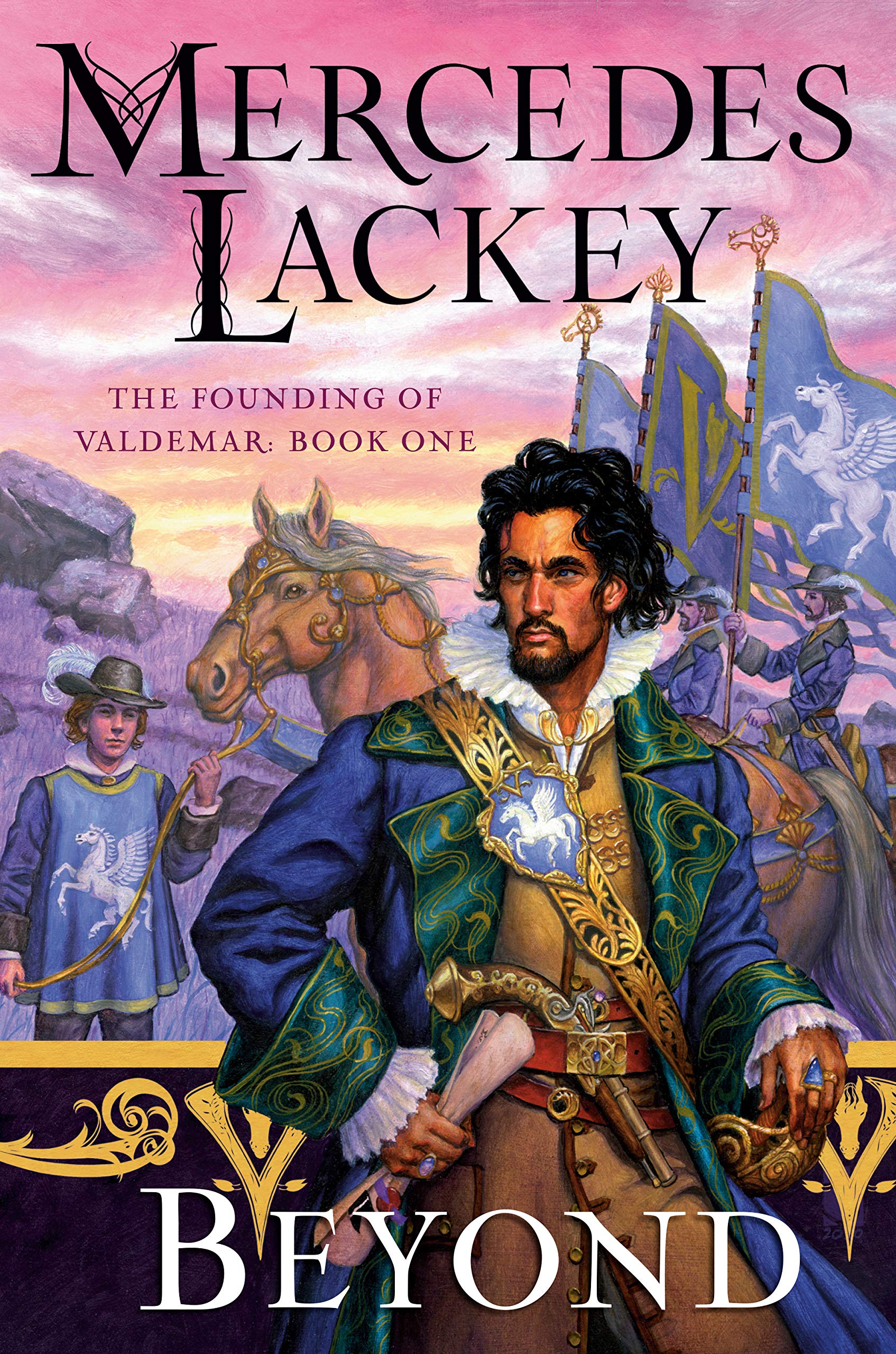Valdemar’s founding has been something of a mythical thing ever since it was first mentioned in the very first Heralds of Valdemar novel, Arrow’s of the Queen. A Baron from a brutal imperial regime in the east sought to free his people from tyranny, and so took them on a long journey far away, beyond the reach of the Empire, where they settled in what eventually became the Kingdom of Valdemar. One of those situations where one man who cared people but was powerful to change an abusive system, so he left the system and created a new one. A different kind of heroism than the kind you see in fantasy stories where one man takes down an entire corrupt regime, but heroism none the less.
In Beyond, we start on Baron Valdemar’s journey to freedom, shedding light on the myth and making it real and relatable, at least within the confines of the world’s lore.
Now, I’ll grant you, this wasn’t quite the story I was expecting. It’s not that the description of Baron Valdemar’s journey away from the Empire was different than how it was briefly described in a few other novels and short stories, but as is often the case with more recent Valdemar novels, it’s all the stuff in between the story’s bones that make me raise an eyebrow in confusion. It seems lately like Lackey wants to tie everything together in neat packages, to have everything connect to everything else, to the point of creating weirdly complicated setups to explain things that didn’t really need an explanation in the first place.
Case in point, the vrondi. Now, vrondi are little air spirits that were largely introduced in the Last Herald-Mage novels and are a key reason why mages were driven insane if they tried to do magic in Valdemar for so long. They were sort of roped into a plan to have them keep an eye on any mages who weren’t also Herald-Mages, watching them until a Herald-Mage could come check them out. Then the Herald-Mages died off, and for a long time mages in Valdemar were just constantly watched by a growing number of invisible presences. Vrondi are also the reason why Heralds can do what they call Truth Spell, which can detect lies or even force someone to be honest. Okay. All makes sense. Nothing contradictory here.
Except that in Beyond, it’s established that vrondi weren’t just “we exist all over the world” natural spiritual creatures; they came with Baron Valdemar to these new unexplored lands after he freed them from a convoluted Imperial scheme that bound them to living dolls and forced them to become slaves. And while I can understand that they felt indebted to Valdemar for his actions in freeing them, it seems rather cruel to have bound them to the spell that made them watch for mages in the first place. They gave permission then, yes, but it begs the question of whether feeling indebted to someone’s legacy, hundreds of years later, would actually make them so willing to bind themselves to that task. It created a weird moral quandary when reading Beyond, and when this book’s story is added to the whole of Valdemar’s lore, it contained aspects that made me quite uncomfortable.
Which would have been find if it was something designed to make the reader uncomfortable, something done to provoke thought and consideration. Instead it felt more like Lackey didn’t think that journeying into unknown lands and trying to keep people safe from dangers on all sides would be an interesting enough story, and so tried to shoehorn in something for long-time readers to recognize, even when it didn’t need to be there and made later books on the timeline make less sense.
It wasn’t that Beyond was a bad book. It was pretty on par with a lot of Lackey’s recent work. But for me, the series peaked a while ago, I think, and each new foray back into the world leaves me increasingly disappointed. From stories complicated in ways that they don’t need to be, to her new strange habit of trying to make modern references that don’t really make any sense (this time it was characters calling a dog a “doggo” and a “pupper,” and yes, they were mages so old it could be argued this was just slang from another era, but really, it’s just a nod to modern real-world slang… which I guess is still better than commentary on the Quiverfull movement or the Scooby-Doo references…) The characters were interesting, the tyrannical debauchery of the Empire was honestly a fascinating setting, and I was interested in seeing how things would play out, but it didn’t hold my interest the way earlier books in the series have done in the past.
And yet, every time I say that I’m done with the series, a new book comes out and I’m dragged back in, out of sheer curiosity if nothing else.
If you’re of like mind to me, thinking that the Valdemar series peaked before the books with Mags started, then this is one I can safely say is easy to pass over without missing much. If you’re a fan of Lackey’s more recent entries into Valdemar, then this one will still be right up your alley, since it’s very much indicative of her modern writing. I can’t say it’s one I’d recommend, per se, but as I said, it isn’t bad, and I can still see it appealing to a certain subset of fans.

